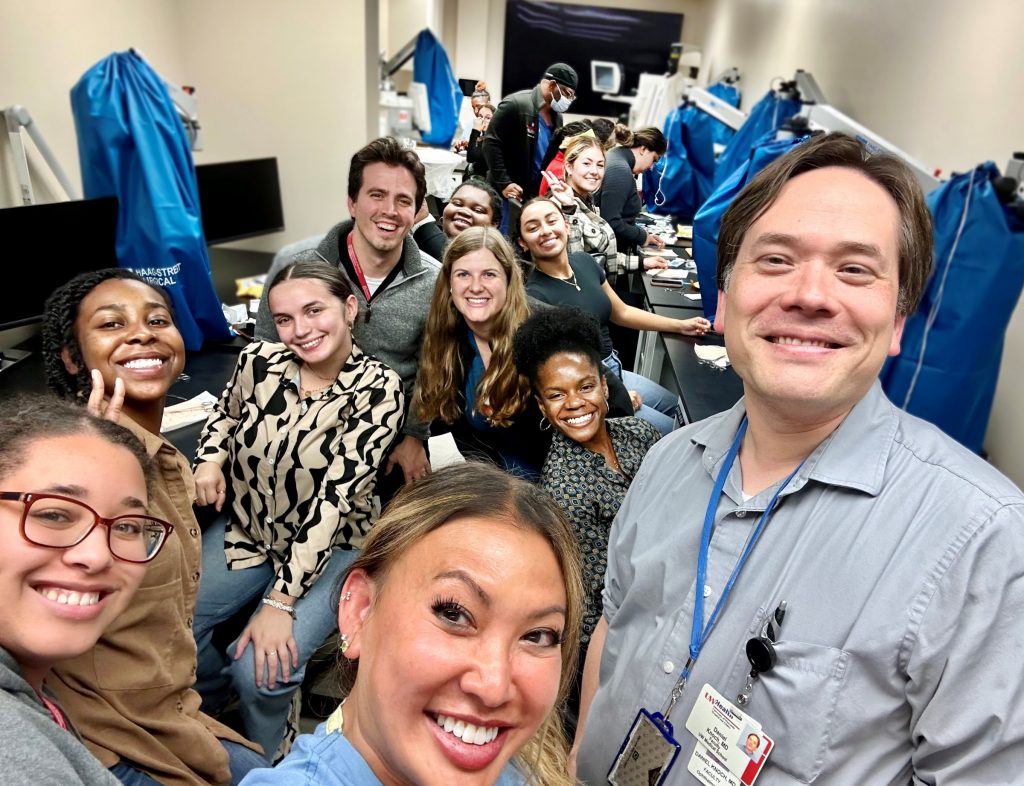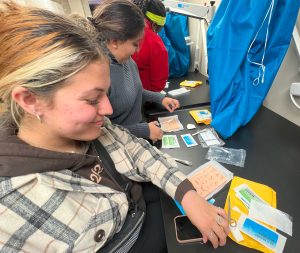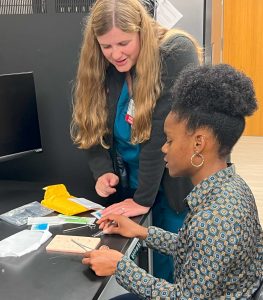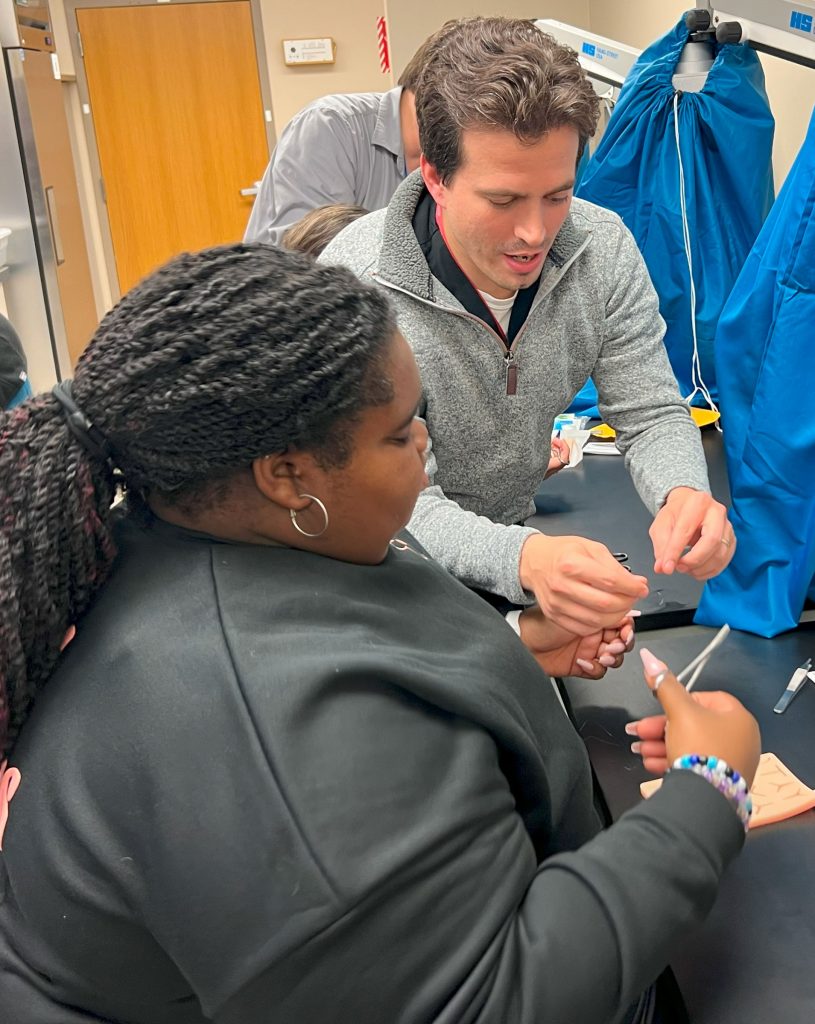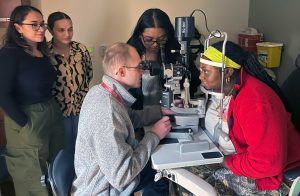Ophthalmology faculty and residents provided 22 students from UW-Madison’s AHANA-MAPS Pre-Health Society – an organization for Black, Hispanic, Asian, and Native American students interested in the health professions – a peek into the world of ophthalmology. In addition to demonstrating various surgical tools, participants discussed ocular diseases, particularly cataracts.
Aramide Adegoke, a junior studying Global Health, said the event was a great opportunity to learn more about the profession of ophthalmology. “One thing that I learned from the training was the process of cataract surgery,” Adegoke said. “It is such a fascinating surgery, and I think it’s amazing how fast it is and how quickly it can improve a person’s vision. I was able to see how much skill and precision is required for the surgery, and I was in awe of the amazing work the doctors do every day.”
Yanci Almontet Vargas, a senior also studying Global Health, said the session provided valuable insights into cataract disease and how ophthalmology as a profession offers the opportunity to be of service to communities abroad. “Growing up in the Dominican Republic, I used to hear stories of ophthalmologists that would perform surgeries at no cost for low-income children and adolescents,” Almontet Vargas said. “As an aspiring physician that hopes to work around the world, ophthalmology offers an opportunity to do so, opening my interest to a wider pool of careers.”
Events like this one allow pre-med students the opportunity to explore areas of medicine they would otherwise not see, enabling them to make more informed decisions about their future careers.
“We are excited to offer these young people exposure to ophthalmology before they have made career decisions,” said Anna Momont, MD, director of residency education. “With time, programs like the AHANA-MAPS Intro to Ophthalmology will lead to more diversity in our residency program and eventually better representation in our specialty.”
The hands-on meeting with the AHANA-MAPS students occurred in October. A second session featuring a panel discussion will occur in the spring. The program is facilitated by Drs. Momont, Daniel Knoch, Cat Burkat, and Abigail Jebaraj and was designed in collaboration with Beverly Hutcherson, diversity and inclusion manager, UW School of Medicine and Public Health.
